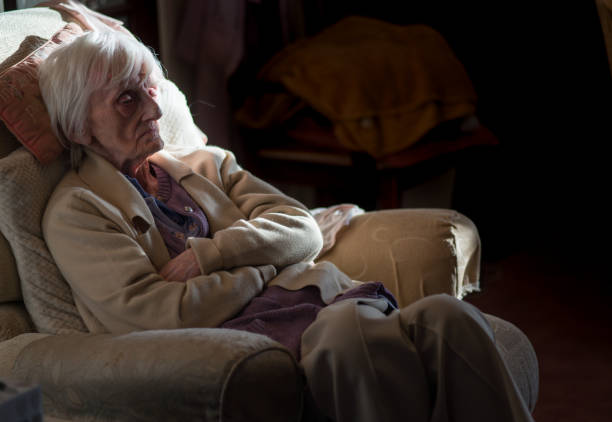Coping With Loneliness In Older Adults
Everyone suffers through periods of loneliness at some points in their lives. It’s a natural condition of being human to feel the pains of separation when someone we love or care about passes on, moves away or is missing in our lives for whatever reason.
For most of us, the feelings of loneliness we experience subside over time. Older adults are not always so fortunate. One of the unavoidable pangs of aging are extended or continual periods of loneliness. Many seniors have outlived their friends and watched their family leave home to build lives of the own. For them, loneliness seems to be a permanent condition for which there is no antidote.
Health Risks Associated With Loneliness
Some physical issues with aging can also give rise to feelings of loneliness such as chronic illnesses or loss of hearing. Seniors living independently may have regular social contacts with home or health care aids, but they still feel alone and disconnected from the lives they once lived.
Seniors that feel socially isolated are at greater risk for serious health conditions. It’s estimated that heart and stroke risks rise by about 30% and dementia by 50% in people who suffer loneliness from being socially disconnected. Depression, anxiety and suicide also increase in people who are unable to manage the bouts of loneliness they suffer. The actual number of seniors who are lonely has significantly increased during the current Covid-19 pandemic due to health concerns, quarantines and social distancing guidelines.
Identifying the Symptoms of Loneliness
It’s difficult for medical professionals let alone regular people to positively identify symptoms of loneliness in older adults. Many seniors are too proud to admit they are having difficulty being alone while other older adults just quietly accept it, believing they have no other choice. Here are some indicators to be on alert for that may arise from elder loneliness:
- Changes in appetite
- Anxiety or restlessness
- Loss of interest in activities they once enjoyed
- Chronic fatigue
- Sleeping too little or too much
- Emotional outbursts
There are many other symptoms and if you suspect a senior you know or care for might be suffering from severe loneliness, it’s wise to get a medical consultation for a proper diagnosis.
Exploring Ways To Help Seniors Combat Loneliness
Fortunately, there are many ways to help older adults who are feeling lonely. Technology is one solution. If physical distance or Covid-19 restrictions prevent you from visiting with an older loved one frequently enough, schedule an online meeting using Zoom or other platforms that are offered at little or no cost. It won’t be the same as an in-person contact, but you can still connect with them on a personal level and a little, simple thing like this can make a world of difference. And don’t forget the power of a phone call to someone feeling alone. You take your phone everywhere so give your loved one a ring when you can and as often as possible.
Encourage hobbies and activities that seniors find interesting. It could be something they once enjoyed doing or something entirely new. Older adults need to feel a sense of purpose in their lives and having something to look forward to each new day can put their feelings of loneliness on hold. Depending on how well they’re able to live independently, providing a senior with a pet will increase their activity levels, make them more socially engaged and build bonds of companionship.
Home care is another option. Home care involves more than just general cooking and cleaning duties. A home care aide can also provide a disconnected senior with regular companionship that involves game playing, shopping trips or something as simple and fun as a ride in the countryside. Home care aides can build meaningful, healthy relationships with seniors that can dispel the doom and gloom of the loneliness they sometimes feel.
Valuing The Support of Family and Friends
The best way to help older adults from feeling socially disconnected is the company of family and friends. When one family member or friend takes the lead and organizes a schedule that allows everyone involved to participate, it makes it easier for everyone to stay in regular contact with their elder loved ones.
The next time you talk to or visit with an elder family member or friend, pay attention to any signs of loneliness they might be experiencing. If you notice any, don’t be afraid to ask for help because there are many amazing resources available to help the ones you love.


